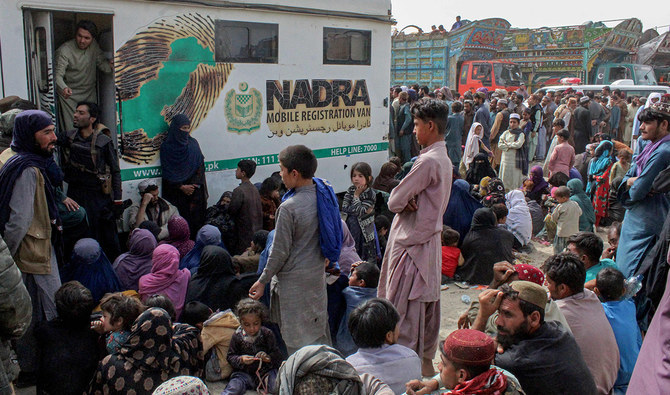Beneath the language of repatriation lies the quiet cruelty of forced banishment.
As the April 30th deadline looms, thousands of Afghan Citizen Card (ACC) holders in Pakistan stand on the precipice of an uncertain fate. The Pakistani government’s decision to enforce large-scale deportations, even of those awaiting third-country resettlement, marks a bureaucratic inflexibility and a severe humanitarian crisis in the making.
For decades, Pakistan has hosted one of the world’s largest refugee populations, offering shelter during some of Afghanistan’s darkest hours. This historical generosity, however, now stands at odds with the current policy stance that discounts the complexity of displacement. When State Minister for Interior Tallal Chaudhry declared there would be “no blanket extension” for ACC holders, he signaled a policy shift that risks undermining Pakistan’s regional moral leadership.
There is a tendency to reduce Afghans seeking refuge to numbers—857,157 undocumented foreign nationals already deported, 815,247 ACC holders still in limbo. But these numbers represent people: daughters who left degrees unfinished, fathers with fragile livelihoods, and families caught in the liminal space between persecution and promise.
The claim that Afghan nationals are involved in narcotics and terrorism, as reiterated by the minister, oversimplifies a multidimensional issue. It places collective blame on an entire population for the actions of a few, an approach that is both morally and strategically flawed. Such narratives risk fueling xenophobia, particularly at a time when regional cooperation and people-to-people connectivity are vital for peacebuilding.
One of the most troubling aspects of the government’s policy is the language it employs. The term “repatriation” suggests a process rooted in dignity, voluntariness, and reintegration. But what we have witnessed is something far more ruthless: a policy of deportation dressed in humanitarian vocabulary. As one young Afghan woman, forcibly returned from Peshawar, tells me, “They called it repatriation. But when I stepped off the bus, I realized it was only exile. No home, no job, no help, just fear.”
Afghanistan today is not a place of return for many but a place they once fled, and continue to fear. Women and girls, ethnic minorities, and former civil society actors now face repressive restrictions, targeted violence, and systemic exclusion under the Taliban regime.
Transit points have been established to the government’s credit, and officials claim that deportees will be provided shelter, food, and transport. Yet, deportation—even when orderly—cannot preserve the dignity of those who have built entire lives in Pakistan over decades. For many, Afghanistan is no longer home; it is a landscape of trauma and erasure.
What message are we sending when we strip legal residents of their status without a viable reintegration plan? When we ignore the plight of those caught in bureaucratic purgatory, waiting for the final word from embassies and international agencies? Dignity is not a logistical checkbox; it is a commitment to seeing refugees not as a burden, but as resilient individuals deserving of safety and hope.
The government insists that a “one-document regime” is necessary. While sovereignty and border control are legitimate concerns, the absence of flexibility in exceptional humanitarian cases is both shortsighted and cruel. Pakistan must consider an urgent policy carve-out for those with verifiable third-country resettlement prospects. It is not a question of compromising national security, but aligning policy with compassion and international law.
We must also remember that blanket policies rarely yield sustainable peace. If anything, they deepen the fault lines of regional distrust and drive vulnerable populations underground, making them more susceptible to exploitation and radicalization.
Pakistan can either reinforce its commitment to shared humanity and regional solidarity or risk undoing decades of goodwill. By collaborating with resettlement countries, extending humanitarian exemptions, and involving civil society actors in crafting dignified return strategies, we can uphold our historical legacy of refuge.
This is not merely about deportation. It is about whether we, as a nation, choose empathy over
expedience, and whether the “repatriation” will reflect genuine reintegration, or remain a euphemism for expulsion




